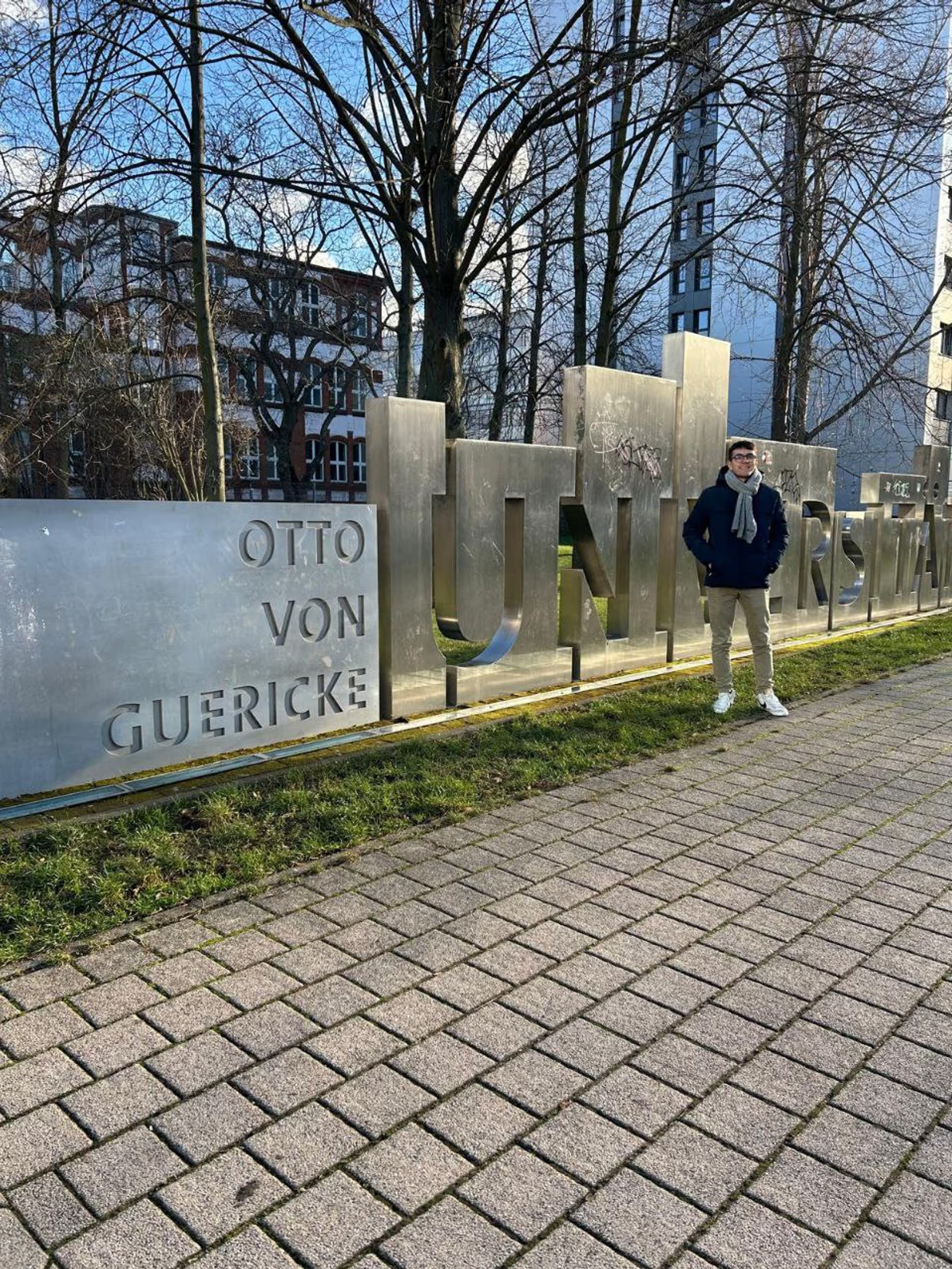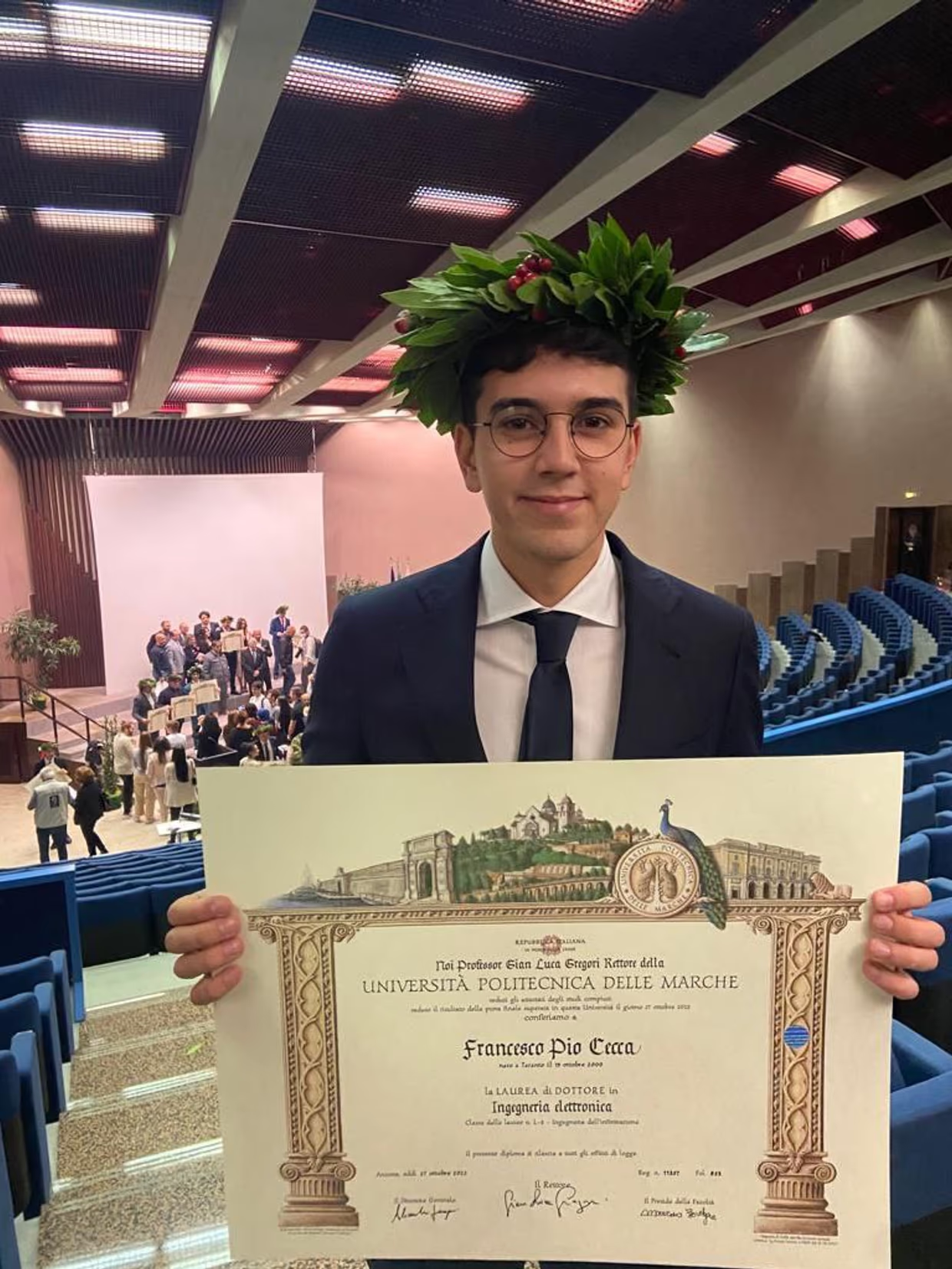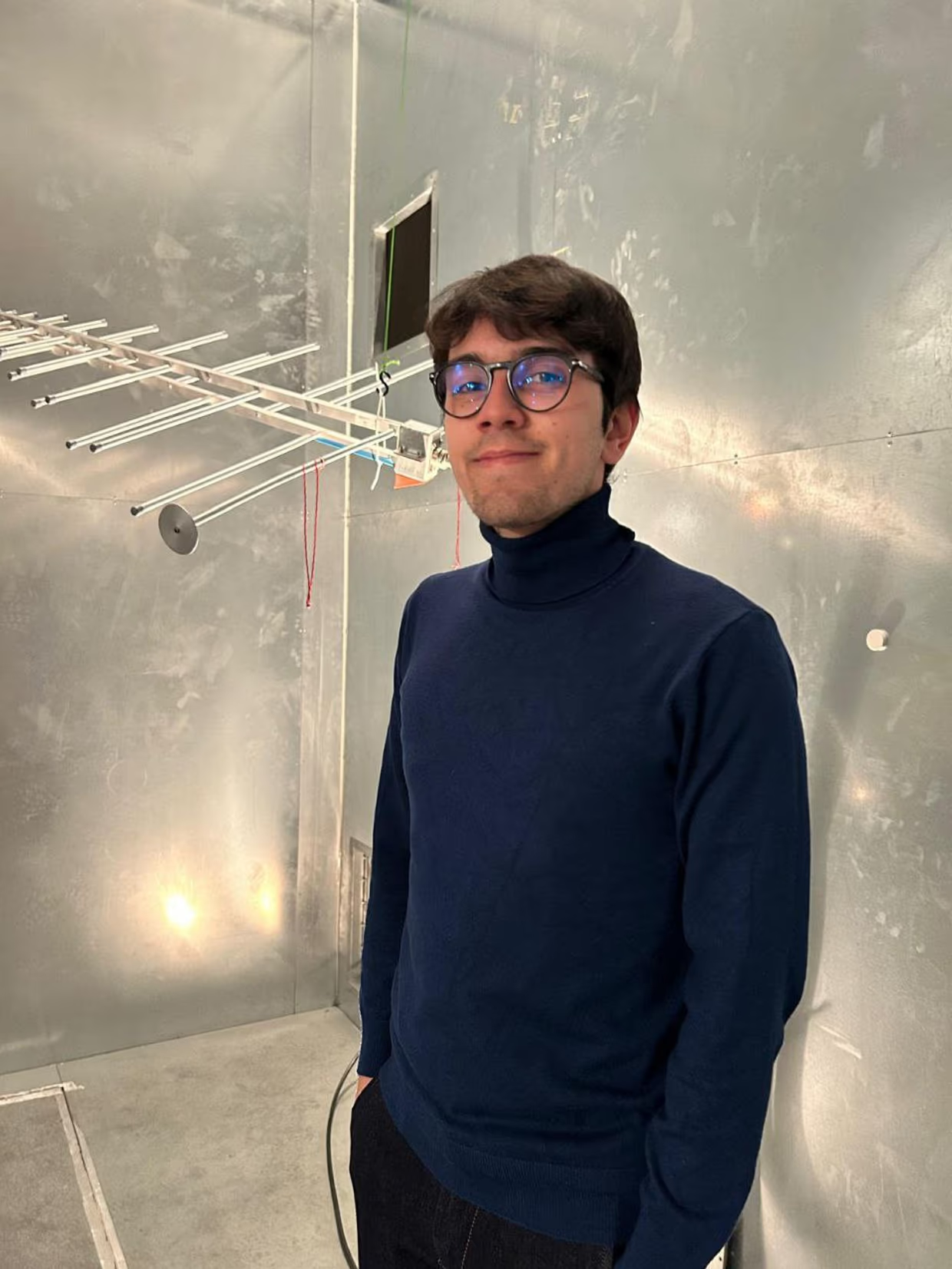Research Topic: Pulsed excitation of RCs, transient field distributions, experimental and simulative approach
Background:
I started my studies at the Università Politecnica delle Marche in 2019, and after three years I graduated with a Bachelor's degree in Electrical Engineering in 2022 on topic: "Analysis and implementation of algorithms for the gait monitoring in patients with Parkinson’s Disease" which was concluded in a conference paper published after the end of the project (https://doi.org/10.1109/COMMNET56067.2022.9993923). In 2024, I successfully completed my Master's degree in Electrical Engineering, specializing in Electronic Systems and Nanotechnologies, at the Università Politecnica delle Marche on topic: "Nanocomposites for the creation of permanent magnets without the use of rare earths". As part of the Erasmus+ program, I had the opportunity to study at the Faculty of Electrical and Computer Engineering at Politechnika Krakowska from September 2023 to February 2024. During my years of studies at the Università Politecnica delle Marche, I was an active member of the Formula Student team of the university. There I was responsible for the design of the hardware and software of the Battery Management System (BMS) of an electric vehicle completely designed by students.
How did you become a part of NEPIT?
During my master's studies, I developed a deep passion for electromagnetic compatibility while also aspiring to pursue an academic career. NEPIT perfectly aligned with both my technical interests and professional goals, offering advanced training and international collaboration, making it my ideal choice for a PhD program.
What is NEPIT according to you?
The NEPIT project sets out to create a training Network of highly skilled engineers through an integrated doctoral training program based on research in Evaluation of Propagation and Interference that underpins all future technological developments.
These researches help improve wireless networks, ensures safer autonomous vehicles through better radar systems, and reduces interference in critical technologies like GPS and medical equipment, directly enhancing everyday life and public wellbeing.
Role in NEPIT?
Electromagnetic fields can interact with electronic system and a degradation of performance is possible. The potential of interference increases with the complexity of the system. Therefore, a number of tests is required for products, to ensure their full functionality in an unknown electromagnetic environment. Especially transients might have a high energy packed into a short time and spreaded in a large frequency range, which might be dangerous for the electronic system To test the immunity of electronic systems to specific interferences, they are often tested inside reverberation chambers. The objective of this project is to develop a model for predicting the average and maximum field strength amplitude and its time derivative that will act on a given device under test when excited using pulsed excitations. This will be validated via measurements and experiments conducted in three reverberation chambers of varying size (tiny, small, large). An efficient field simulation method based on plane-wave approaches or raytracing methods and the statistic distributions of field quantities of general validity for the time and different loading conditions is expected.
Plans for immediate and distant future?
In the immediate future, I plan to learn as much as possible about the EMC world, deepening my knowledge and gaining hands-on experience. Looking further ahead, I aim to continue my research journey with a postdoctoral position focused on reverberation chambers, building on what I’ve learned and contributing to advances in the field.




